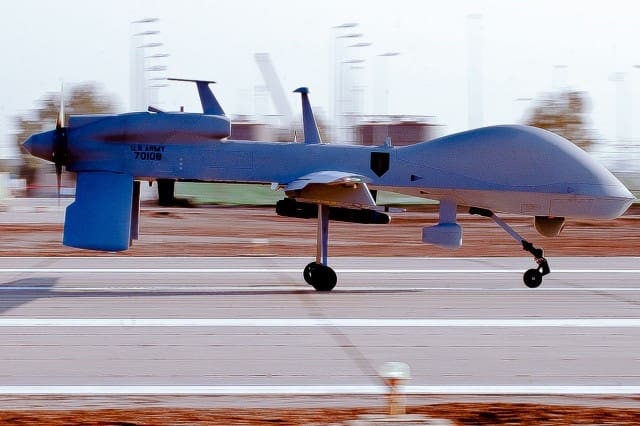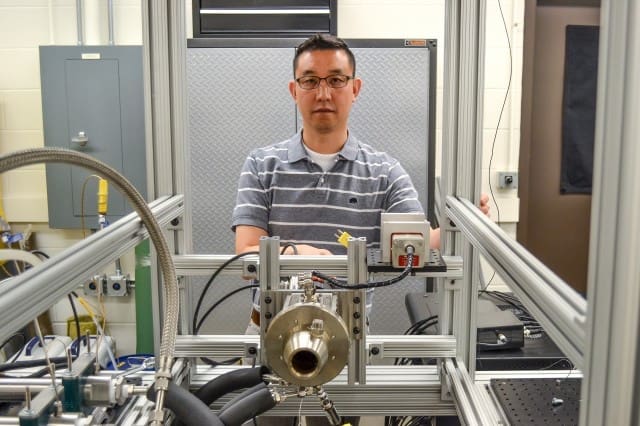
ABERDEEN PROVING GROUND, Md. — The U.S. Army recently awarded the University of Illinois-Urbana Champaign an $8 million, four-year cooperative agreement to develop key technologies that may allow the Army’s unmanned air and ground vehicles to run on any type of fuel.
Researchers at the U.S. Army’s Combat Capabilities Development Command Army Research Laboratory expect new technologies to increase unmanned vehicle performance and reliability and increase drone efficiencies.
“The Army’s fleet of unmanned aircraft systems often experiences performance and reliability issues due to fuel property variations and their effects on the ignition,” said Dr. Mike Kweon, program manager for the lab’s Versatile Tactical Power and Propulsion Essential Research Program.
The university will research comprehensive multi-fuel chemistry and ignition assistant technologies, which add energy to engines for reliable ignition.
Engines require a mixture of air and fuel, and an ignition source–either spark or compression ignition–to operate. For compression-ignition engines, thermal energy generated by compression is insufficient when low ignition quality fuels are used especially at high altitudes and cold conditions.
To address this, University of Illinois-Urbana Champaign researchers will investigate the ignition chemistry of fuels using machine learning algorithms, develop materials for novel ignition assistant technologies for flexible fuel UAVs, and investigate advanced propulsion technologies for high speed air launch effects in collaboration with Army scientists and researchers.

“We are thrilled to be taking part in development of new technologies that will be integrated into new UAV propulsion systems in the future for the Army. Equally important is training the next generation of engineers who can serve our nation in this field of science,” said Prof. Tonghun Lee, University of Illinois-Urbana Champaign. “This partnership is very exciting. The laboratory set out on a mission to operationalize science for transformational overmatch.”
Part of effort will expand the team to include experts in academia, small businesses and industry to push concepts and ideas into future capabilities for the Army, Lee said.
“The University of Illinois-Urbana Champaign has expertise and capability to perform research in multi-fuel chemistry and ignition assistance in a partnership with the Army to advance these technologies and to provide future capabilities for the warfighter,” he said.
This university-led research project is one of 11 funded this summer by the Army’s corporate laboratory as a part of Center for UAS Propulsion efforts to develop technologies for multi-fuel capable hybrid-electric engines. Each university partner is helping the Army address the energy demand required to power future unmanned vehicles. The Army awarded additional funding for similar research at the University of Minnesota; University of Michigan; University of Wisconsin-Madison; University of Illinois at Chicago; Iowa State University; University of Delaware; University of North Texas; Texas A&M University; University of Missouri and University of Tennessee-Knoxville.
The research, slated to begin this fall, is part of a larger research portfolio of multi-fuel capabilities technologies led by the laboratory that supports the Army Modernization Priority for Future Vertical Lift. Most recently, the laboratory announced the development of a new, advanced scientific model that will allow vehicle maintenance specialists to turn to bio-derived fuels in austere locations, as well as efforts to convert a home-based generator into a power source for autonomous ground and air vehicles.
By US Army CCDC Army Research Laboratory Public Affairs

